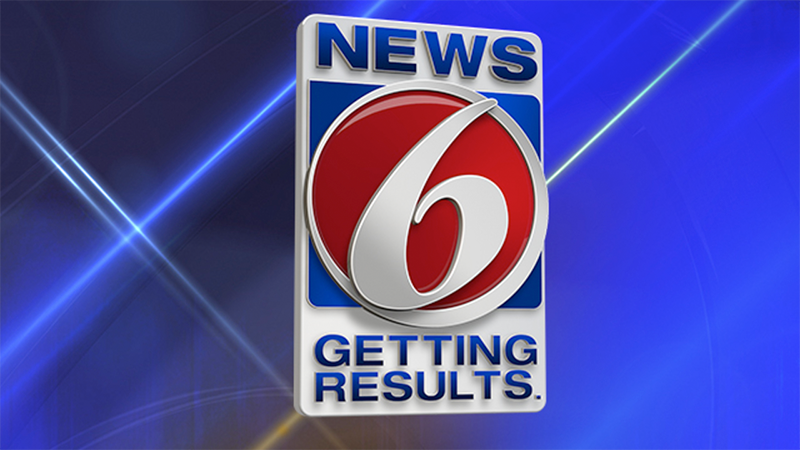Cases of the measles have spiked this year with more than 760 now reported nationwide -- the most since 1994, when the United States had 963 cases, according to The Associated Press.
The problem this year includes, although it’s not limited to, dozens of people who contracted measles while traveling internationally, triggering outbreaks among mostly unvaccinated populations.
Recommended Videos
Considering that this 2019 tally is the highest it’s been in 25 years, measles cases have been in the news nearly every day, with many headlines focusing on vaccination.
Typically, babies get their first measles, mumps and rubella vaccine -- better known as the MMR shot -- when they’re about a year old, with another shot planned for the time they’re 4 to 6 years old, according to the Centers for Disease Control and Prevention.
But what about adults? Are we protected?
The answer isn’t so cut-and-dried. It all depends on the year you were born.
“The simple answer is, people born before 1989 likely only received one dose of vaccine,” said Dr. Frank McGeorge, an emergency room doctor and a health reporter. “In 1989, the recommendation changed to two doses of vaccine during childhood. That is considered fuller protection than just one dose.
“It becomes somewhat complicated if you were born between 1963 and 1989, but suffice to say, if you were born after 1989, you should have received two doses and be considered fully vaccinated.”
OK then. So for people born before 1989, what’s the situation?
Let’s break it all down.
When were you born?
1989-current
As McGeorge said, during this time frame, doctors were giving out two doses of the MMR vaccine, so if you received these, you’re considered protected for life. You should never need another measles shot, the CDC said.
"(The) CDC considers people who received two doses of measles vaccine as children according to the U.S. vaccination schedule protected for life, and they do not ever need a booster dose," the website reads.
1963-1989
This is where things start to get tricky. At the time when you were born, a single dose of the vaccine was considered adequate, and that’s what was given out. If you’re an adult who will not be in a high-risk setting for measles transmission, the CDC considers you protected.
However, for adults who will be in a place that poses a high risk for measles transmission, the CDC says you should make sure you’ve received your two doses of the MMR vaccine, separated by at least 28 days. These adults include:
- Students at post-high school education institutions
- Health care personnel
- International travelers
- People who public health authorities determine are at an increased risk for getting measles during a measles outbreak
1963 or earlier
The current vaccine was developed in 1963, so if you were born before then, needless to say, you didn’t receive it. There’s also a chance you got the “killed measles vaccine” -- an earlier form of measles vaccine that's no longer used -- meaning, you’re advised to talk to your doctor about getting revaccinated with the current, live MMR shot.
Not many people fall into this “killed measles vaccine” group, as the shot was given to fewer than 1 million people between 1963 and 1968. If you’re not sure whether you received it, you could ask your doctor to test your blood to determine whether you’re immune.
Or, and this goes for anyone with questions about his or her vaccination status, you can just get a dose of the current MMR vaccine.
“There is no harm in getting another dose of MMR vaccine if you may already be immune to measles (or mumps or rubella),” the CDC said.
That's good to know.
Health officials say people born before 1963 were likely exposed or they had the measles at some point, so they have natural immunity.
The website Health Line says that for people born around or before 1957, it might be worth checking with your doctor regarding your status. Not everyone has that natural immunity, but a doctor is able to check a person’s immunity levels with a blood test to detect antibodies that fight measles.
As for whether adults are actually seeking another dose, considering the measles situation in the U.S. right now, McGeorge said it seems that way.
“Many people are asking for the second dose; however, it is really only indicated if you are in a high risk exposure group,” McGeorge said.
Measles was declared eliminated -- meaning, there was an “absence of continuous disease transmission for greater than 12 months” -- from the United States in 2000, according to the CDC.
But now, the U.S. has 23 states reporting cases. The latest to join the list is Pennsylvania. The highest number of cases is in New York.
Measles was once common, but gradually became rare after vaccination campaigns that started in the 1960s. For most people, the virus causes a fever, rash, runny nose and cough. If it infects the lungs, it can cause pneumonia. Measles in older children can lead to inflammation of the brain, called encephalitis, which can cause seizures and brain damage. Health officials say vaccination is the best protection against measles.
For more specifics or to look up your individual circumstances, check out the CDC's FAQs page.
The Associated Press contributed to this report.
